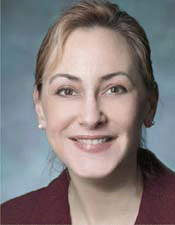Both Dr. Gourin and Dr. Johnson emphasize that patient selection must be based on clinical trial data. That means that only patients with stage III or IV tumors of the larynx and those with tumors at the base of the tongue or tonsils should be treated with CRT. After that, we continue to struggle with indications, with who needs to get this therapy, Dr. Johnson said. There is a tendency on the part of the public, and even on the part of the doctors, to think if it is good for one, it is good for everybody. And that is not true.
Explore This Issue
April 2008Early-stage patients-those with stage I and II disease-can be treated with surgery alone or radiation alone. And with improved surgical techniques and tools, such as the laser, surgeons can remove small tumors with little morbidity, according to Dr. Johnson. Thus, CRT is not appropriate for patients with early stage disease. On the other hand, stage IV tumors require multimodality therapy; however, the exact combination of treatments that should be used for these patients is still a matter of ongoing study. Unfortunately, trials that randomize patients to surgery versus organ preservation therapy are hard to do, because few patients are willing to leave that choice up to the flip of a coin. That said, more studies are needed to better determine the effectiveness of CRT in different subsets of patients.
Monitoring for Treatment Failure and Function
Monitoring patients after CRT is critical. Some patients will suffer a recurrence, and diagnosing that relapse can be difficult. Computed tomography (CT) cannot distinguish between tumor regrowth and inflammation. Instead, Dr. Johnson suggests that patients need to be followed with combined positron emission tomography/computed tomography (PET/CT) to look for anatomic abnormality with elevated metabolism.
If patients do relapse after CRT, treating them is more difficult. We know that if they have had radiation in the past, their chances of having problems after surgery are much higher, said Mark Wax, MD, Professor of Otolaryngology and Head and Neck Surgery and Program Director of Otolaryngology at Oregon Health and Science University in Portland. However, if they have CRT, and require surgery after that, complications of wound healing and rehabilitation are higher than after radiation alone.
But even for those whose cancer is eliminated by CRT, avoiding surgery may not improve or preserve function. We do know that there are some people who do terribly with CRT, Dr. Gourin said. If they have a nonfunctional organ up-front, and you try to preserve it, such patients may not do well from a functional standpoint because the organ you were preserving was not functional.

Leave a Reply